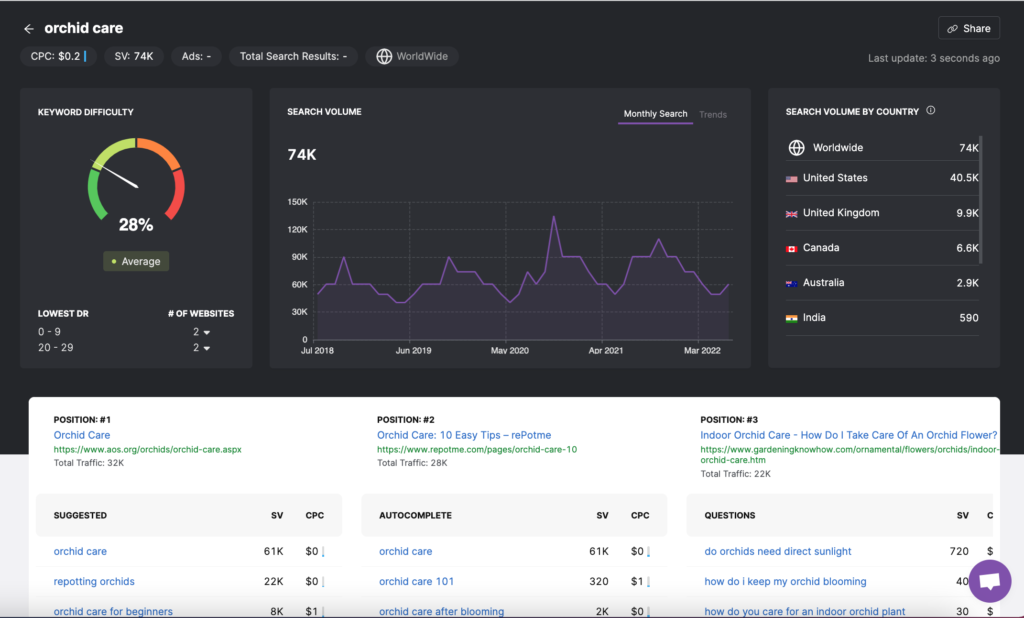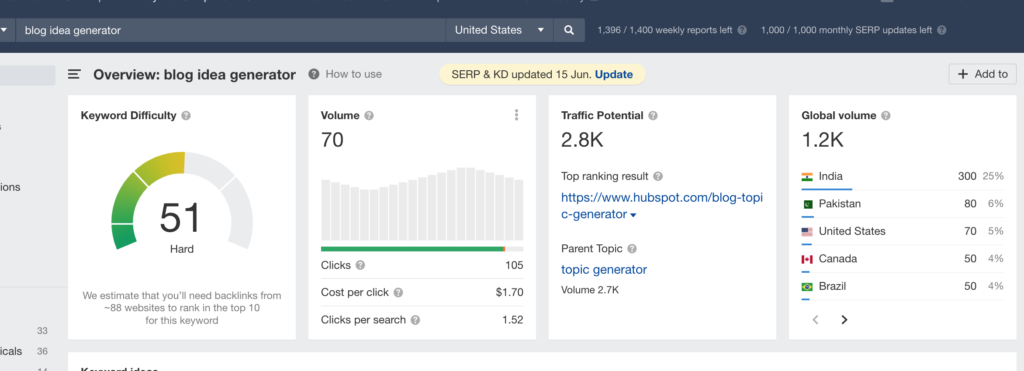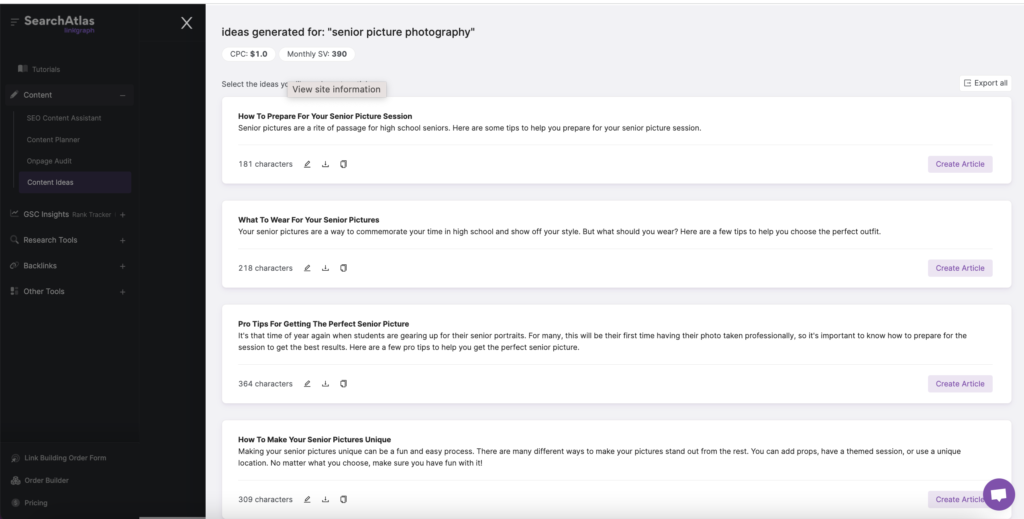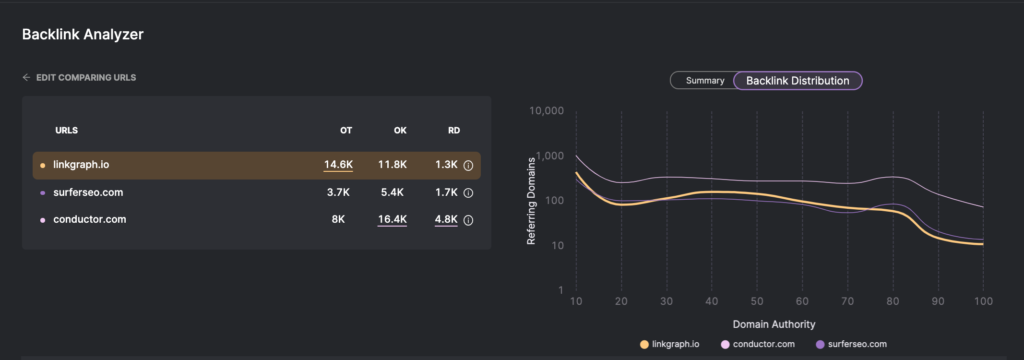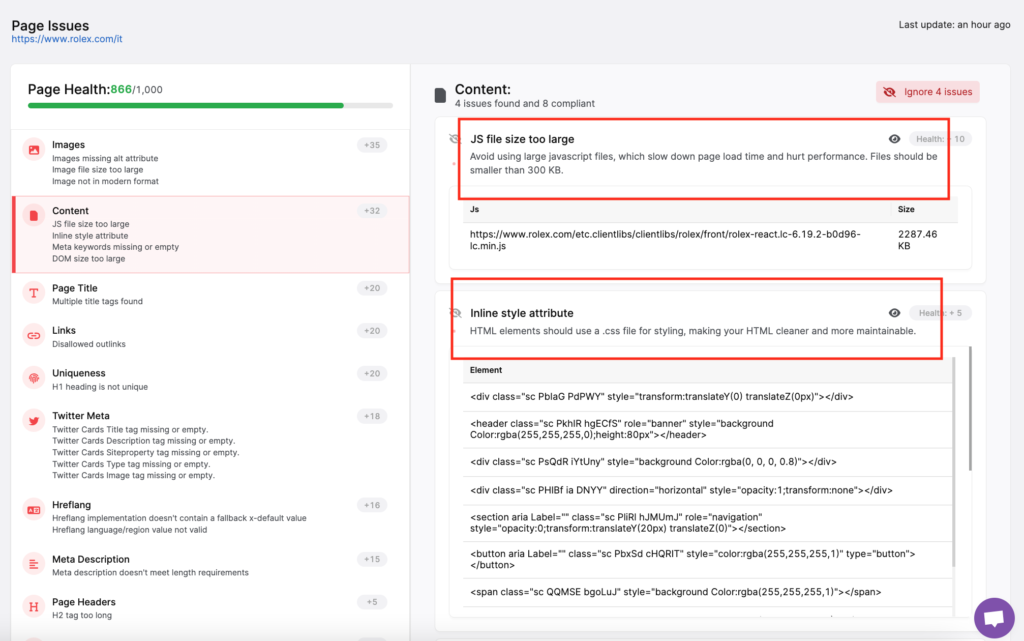10 DIY SEO Software Tools & Tips for How to Use Them
Search engine optimization has many moving parts, but anyone can learn how to DIY SEO if they put in the time and the effort. If you want […]
Search engine optimization has many moving parts, but anyone can learn how to DIY SEO if they put in the time and the effort. If you want to take your website’s SEO into your own hands, here are some tools and tips to help you start implementing your own SEO strategy.
Can I Do SEO on My Own?
Of course! Although there are professional SEO agencies that you can work with, there are many brands and business owners who do SEO on their own.
However, it’s important to remember that SEO is an ongoing process and it takes time to see results. You are unlikely to see results overnight, but if you stay proactive with SEO best practices, you’re likely to see your organic traffic increase.
What Does it Take to DIY SEO?
If you want to do search engine optimization across your website, it’s important to have at least a basic understanding of what Google’s ranking factors are and how to optimize your for them.
Some foundational parts of SEO you will want to have a firm foundation in include:
- On-Page SEO: Optimizing the elements on your web pages including content, meta tags, internal links, and more
- Off-Page SEO: Earning backlinks and brand mentions on other websites to show Google that your website is reputable and well-trusted
- Technical SEO: Optimizing the technical elements of your website to make it more easily indexed by search engine crawlers
- Page Experience: Improving the user’s experience on your web pages through faster load times, response times, and visual stability
Secondly, you will also need to have the right SEO tools to DIY SEO. Pairing these tools with your fundamental SEO knowledge will empower you to do SEO on your own and effectively.
What Are DIY SEO Tools?
SEO software tools will provide you with the ability to conduct a range of search engine optimization tasks right from your computer.
While some SEO software is very complex and designed for experienced professionals, other tools like Search Atlas are loved by SEO experts but also easy for DIYers to use.
Here are 10 DIY SEO software tools you’ll need to start DYI-ing SEO, as well the best ways to use them.
On-Page SEO DIY SEO Tools
1. Keyword Research Tools
Keyword research is the foundation of on-page SEO, as keywords are what connect your business to your target audience online.
It’s important to choose keywords carefully. You want the keyword to be relevant to your products or services and to be commonly used by your audience. Also, you will want to find keywords that are realistic goals for your website.
To learn more about the many steps involved in keywords, read our keyword research guide.
SEO experts spend a lot of time doing keyword research to make sure they understand search intent and the competitive landscape of industry keywords. Tools like the Search Atlas Keyword Researcher provide them with comprehensive keyword metrics, and any business owner or webmaster can easily use this tools as well!
With the Keyword Researcher, you can easily combine keywords into lists and find relevant alternatives when a keyword is too competitive, too uncommon, or doesn’t show very strong conversion potential.
You can also be confident that the keyword metrics are up-to-date and accurate.
2. Competitor Research Tools
Another important part of implementing a DIY SEO strategy is understanding your competition.
One of the most simple ways to research your competition is to use Google. Search for your competitors and see what type of content they have on their websites.
If you don’t know who your competitors are, simply type in the keywords that you hope to rank for to see what content Google promotes. and Google will show you how many results your competitor’s website has in Google’s search engine and also show you a brief overview of your competitor’s website.
But in addition to Google, you can use the competitor researcher in Search Atlas to take a closer look at your competitors and what it will take to outrank them.
Here’s an overview of how to do competitor research on your own using this helpful tool.
3. Blog Ideas Generator
Consistently writing and publishing blog posts on your websites can help you rank for more relevant keywords and drive even more organic search traffic to your website.
But coming up with valuable blog post ideas takes time! With the help of AI, you can make that process simpler and deploy an effective blog strategy on your website.
Simply enter a target keyword into the tool and the Blog Ideas Generator will provide a selection of titles and summaries that you can work from.
This takes the hard work of coming up with a relevant piece of content much easier and helps you move from keyword to topic quickly.
4. Content Optimizer with AI Content Generation
Content optimization software essentially gives you the cheat codes to greater ranking potential (without actually cheating!)
If you’re intimidated about the content writing part of SEO, or don’t want to hire SEO content writers, these tools will tell you which terms to include in your content as well as ideal word count, readability, internal links, and more.
DIY SEO tools like the SEO Content Assistant also include AI integrations that can help you write faster and more often. Got writer’s block? Use the “Write for Me” button when you are just not quite sure where to go next in your blogs or landing pages.
Additional features like the internal links suggestions and rephrase feature can speed up your content writing in other ways.
If you want to DIY on-page SEO, there is no better choice then the SEO Content Assistant.
5. Content Strategy Planner
If you want to plan out your SEO strategy for the long term, a content planner tool can help you think far ahead about building topical authority on your website.
Although the goal of SEO is to rank specific pages on your website, brands that show lots of expert knowledge in industry niche are more likely to see strong ranking potential overal. This is called E.A.T. — expertise, authority, and trustworthiness — and you want search engine crawlers to see E.A.T. displayed across your entire website.
The Content Planner tool in Search Atlas will provide you with over 300+ keyword clusters that you can use to build informative blog posts from. Simply enter a keyword that has relevance to your product or service offering and see what the tool suggests.
If you want to write those blog posts yourself – simply send a article suggestion over to the content queue and get writing. When complete, you can also publish to your WordPress website in just 1-click.
Off-Site DIY SEO Tools
6. Backlink Analyzer
When it comes to off-site SEO, backlinks are Google’s top ranking factor. When another website links to yours, it shows search engine crawlers that other people in your industry find your content valuable, as long as your links come from websites that also display E.A.T. and are not seen as spammy or low-quality.
This is where a backlink analyzer comes in. It allows you to see all of the backlinks and linking pages to your own website and your competitors. If your backlinks have lots of links from high quality website, you will need to similarly earn backlinks in order ot improve your Domain Authority score and your ranking potential overall.
If you want to to DIY your off-site SEO or link building, you can also use this SEO tool to identify potential websites that you may want to reach out to for link building opportunities. Consider sending link requests or guest posts to those websites in order to increase your inbound links and Domain Authority score.
Although earning backlinks takes a lot of effort and time when done the right way, it is one of the best ways and a quick way to elevate you performance in the SERPs.
7. DA Checker
When identifying which websites you want to reach out to for potential link building, you will want to use a DA checker to identify their Domain Authority scores.
A general rule of thumb is to try to earn backlinks from websites that have industry relevance to yours and a DA or DR score that is equal to or higher than yours.
Avoid reaching out to low-quality websites that seem spammy. Although backlinks from websites with lower DA than yours aren’t necessarily spammy, you will want to prioritize your public relations and ilnk building outreach efforts on those websites that will have the greatest impact.
Technical SEO DIY SEO Tools
8. Site Audit Tool
A site auditor tool can help you identify all of the SEO issues on your website that are impacting your keyword rankings, whether you have 5 landing pages or 5000. SEO Audits take the guesswork out of technical SEO and help those who want to do their own SEO have the knowledge they need to resolve technical issues.
For those webmasters who want to DIY their technical SEO and web development optimizations, the SEO audit tool provides detailed instructions on how to resolve the issues on your website and which should take the greatest priority.
You can work through your audit page by page or issue by issue and see any technical issues related page speed, robots tags and more. It will also identify any content issues with page titles, meta description, h1 tags, social media meta graph tags, and others.
If you use the Search Atlas Site Auditor to DIY any SEO audit, you will also be able to track your SEO health over time. Our software will also alert you if any issues pop up with your website like broken links, failed Core Web Vitals and more.
9. Schema Markup Generator
One of the most powerful way to optimize your web pages is to add relevant schema markup so your pages can be eligible for Google’s rich results.
Google currently has 30+ types of rich results, from organization, small business, events, products, and more. Showing up at the top of the SERPs in these more prominent placements.
But optimizing with schema markup does require some work on the backend of a website. If you want to do SEO on your own, a schema generator can generate the correct markup for you so all you have to do is copy and paste the JSON-LD markup with all of the required properties into the header of your web page.
10. Rank Tracker
One of the most popular keyword rank tracking tools is Google Search Console. This tool is commonly used among SEO DIYers because it is totally free to site owners.
Google Search Console will show you every keyword that your website ranks for, but the platform can be difficult to navigate and doesn’t necessarily have the best user experience.
Another rank tracker SEO tool DIYers might want to consider is GSC Insights. Like Google Search Console, the rank tracker shows you 100% of your keyword rankings and provides daily position updates, but in a more helpful interface with more detailed performance insights.
Final Thoughts on Doing your Own SEO
With the right SEO tools, you can take ownership of your SEO and start seeing better result with keyword rankings and organic traffic.
To get started with a trial of the Search Atlas tools listed above, get registered.











































































